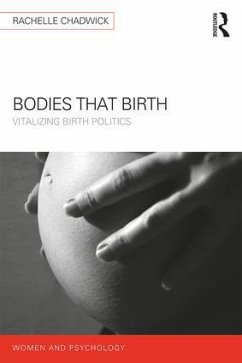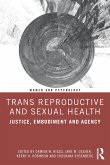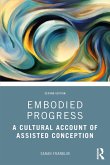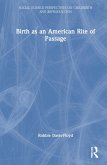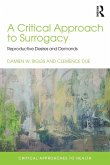Bodies that Birth puts birthing bodies at the centre of questions about contemporary birth politics, power, and agency. Arguing that the fleshy and embodied aspects of birth have been largely silenced in social science scholarship, Rachelle Chadwick uses an array of birth stories, from diverse race-class demographics, to explore the narrative entanglements between flesh, power, and sociomateriality in relation to birth.
Adopting a unique theoretical framework incorporating new materialism, feminist theory, and a Foucauldian 'analytics of power', the book aims to trace and trouble taken-for-granted assumptions about birthing bodies. Through a diffractive and dialogical approach, the analysis highlights the interplay between corporeality, power, and ideologies in the making of birth narratives across a range of intersectional differences. The book shows that there is no singular birthing body apart from sociomaterial relations of power. Instead, birthing bodies are uncertain zones or unpredictable assortments of physiology, flesh, sociomateriality, discourse, and affective flows. At the same time, birthing bodies are located within intra-acting fields of power relations, including biomedicine, racialized patriarchy, socioeconomics, and geopolitics.
Bodies that Birth brings the voices of women from different sociomaterial positions into conversation. Ultimately, the book explores how attending to birthing bodies can vitalize global birth politics by listening to what matters to women in relation to birth. This is fascinating reading for researchers, academics, and students from across the social sciences.
Adopting a unique theoretical framework incorporating new materialism, feminist theory, and a Foucauldian 'analytics of power', the book aims to trace and trouble taken-for-granted assumptions about birthing bodies. Through a diffractive and dialogical approach, the analysis highlights the interplay between corporeality, power, and ideologies in the making of birth narratives across a range of intersectional differences. The book shows that there is no singular birthing body apart from sociomaterial relations of power. Instead, birthing bodies are uncertain zones or unpredictable assortments of physiology, flesh, sociomateriality, discourse, and affective flows. At the same time, birthing bodies are located within intra-acting fields of power relations, including biomedicine, racialized patriarchy, socioeconomics, and geopolitics.
Bodies that Birth brings the voices of women from different sociomaterial positions into conversation. Ultimately, the book explores how attending to birthing bodies can vitalize global birth politics by listening to what matters to women in relation to birth. This is fascinating reading for researchers, academics, and students from across the social sciences.

